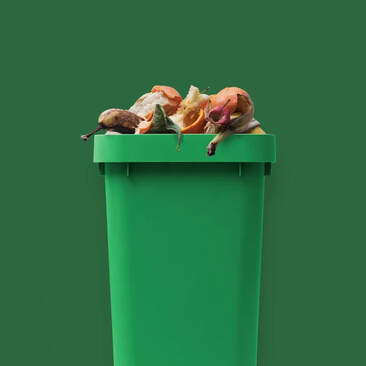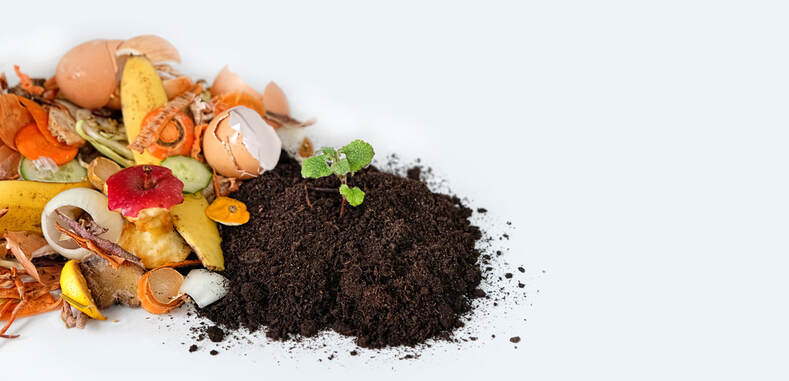|
Food waste has been included with other general waste materials for some time, and with clear evidence of long-lasting damaging effects on our environment, it is certainly a timely amendment to the UK Environmental Act 2021. Mandatory food waste collections across England are being introduced to every workplace, that employees 10 full time staff or more. Scotland legislated the separation of food waste in 2016. The UK produces a huge amount of food waste every year, with WRAP (waste recourse action programme) reporting 9.5 million tonnes of food waste each year, shockingly most of which was either landfilled or incinerated. WRAP calculated this will have caused 25 million tonnes of harmful Greenhouse Gases to be released from UK landfills. And calculated that 6.5 million tons of the food waste produced could have been eaten. This is why food Re-Distribution is an essential stage of food waste management, one that Modus Food Waste Recycling includes in their service. Click here for food re-distribution. What is food waste?Food Waste, or Food Loss is food that has been lost, wasted or uneaten at various stages of the food supply chain beginning Food Waste, or Food Loss is food that has been lost, wasted or uneaten at various stages of the food supply chain beginning with production and ending with consumption. For this blog we will concentrate only on the consumer. These are the 3 main reasons for food waste.
The food waste legislation and how it will affect you?The Government’s Environment Act 2021 states that all food waste will be collected separately from all households, businesses, and organisations. Residential food waste collectionsHouseholds are responsible for over 60% of food waste, which will see councils adding a weekly collection to their waste duty of care. This may even see some reducing their weekly collection of General Waste to a fortnightly, along with more stringent recycling rules for other non-recycled materials. Business Food waste collectionsThe environmental bill specifically places the duty on all businesses to present food waste separate from all other waste streams. This will apply to all food, whether that be crusts from lunch or out-of-date yoghurt in the fridge. The heavy produces of food waste will most likely be utilising food waste recycling to minimise the weight in the general waste bin, as this is charged by weight, and will be already aware of the benefits it can bring to a waste management system. Food waste collections for organisationsThis will include all practitioner’s clinics, not-for-profits, the education sector and alike. If people are working in your organisation who create food waste that weighs over 5kg each week, you will be included. For sectors like schools and care homes, recycling food waste will be a benefit to the organisation. Where does the food waste go?Once the food has been separated and presented for collection, then a registered service provider would collect the waste from the premise each week and then deliver the food to a special facility that can convert food waste into energy. Anaerobic digestion is a natural process, that occurs in nature, and the plant is designed for replication of what would otherwise happen, but rather than the gases being released into the atmosphere, they are contained safely and reused for our national grids’ heat and electricity system. This reduces the need for fossil fuels and is a more sustainable energy solution. The end process will leave the food in a soup-like substance, this is not wasted but instead, the soup (digestate) is pasteurised and used in local farming as an organic fertiliser. How much does food waste collections costs?In comparison Food Waste Recycling costs around 50% less. This is due to the fact any waste you send to a landfill or incinerator is charged by weight, and your costs increase every tax year. When your food waste is collected separately, it doesn’t go to a landfill and the related costs are avoided Important to notewill apply to all residents and businesses who produce food waste of 5kg or more" Wales will see mandatory food waste collection from April 2024. And will apply to all residents and businesses who produce food waste of 5kg or more and will need to separate their food waste ready for collection.
England is to follow suit, with dates yet to be released, but the requirement will be in 2024 – 2025. This is part of the UK Net Zero Strategy, to see zero waste and reduce carbon by 2050. Implementing a food waste collection in your organisation or business like most deadlines will benefit from a sooner rather than later approach. We can help you identify quantities of food waste and implement best practices that will form a coherent daily task among all people who will help achieve the end goal of separating all food waste within your workplace.
0 Comments
Your comment will be posted after it is approved.
Leave a Reply. |
Blog Archives
July 2024
|
GET SOCIAL.
All images and content are owed and endorsed by modus waste & recycling ltd Copyright 2024. Modus Waste & Recycling Ltd company (registered in England and Wales 13046537)



 RSS Feed
RSS Feed






